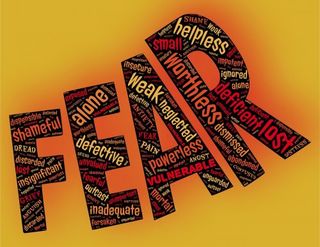Catastrophizing
Tough Problems: Catastrophizing
How to address fears about coronavirus and social anxiety.
Posted March 10, 2020 Reviewed by Kaja Perina

This is the latest in the Tough Problems series. In each installment, I present two composite questions that my clients face and my response to each.
Dear Dr. Marty: I know that my risk of contracting the coronavirus, let alone a serious case, is low, but I can't help but catastrophize. It's spreading so fast, and all the world's governments are so worried. My life savings, what I was hoping to have for my child's college education, are down by one-fourth in just the last week.
I worry about my grandparents, my parents, my neighborhood. I worry that if any of us get sick, the doctors and hospitals will be overwhelmed. Already, I can't even buy hand sanitizer or even toilet paper! I've always been careful to take care of my health, and it could all be for naught. Could this be the Armageddon that the religious fanatics keep prophesying?
Marty Nemko: Of course, no one knows for sure. Coronavirus (COVID-19) is a new virus. But at least from where I sit, it seems unlikely that, with some the world's greatest minds with billions of extra dollars working on it and communicating with each other moment-to-moment, this will be anything close to Armageddon.
Yes, this first year of COVID-19, when no one has built up immunity, the problem could be bad. But over the next year, we will build immunity, and scientists will likely have developed better preventives and treatments. Who knows? It could be that coronavirus will merely be one of the pathogens covered in a flu shot.
In the meantime, just do the obvious, what the experts have been telling us ad nauseam: Wash your hands (especially fingertips) frequently and vigorously for 20 seconds, cough or sneeze into a tissue or your elbow, reduce touching your face, and avoid non-essential groups. Then just live your life. When you start to worry, distract yourself by doing something positive, maybe even by helping other people stay calm.
Dear Dr. Marty: I suffer from social anxiety: I'm so afraid that people won't like me, that I'll sound stupid or otherwise embarrass myself. I've tried all sorts of self-reminders: "Everyone doesn't need to like you." "Other people feel the same way." "You're catastrophizing." But none of it works well enough.
I find myself ever more wanting to stay home—and it's not because of the coronavirus. What can I do to reverse my downward spiral?
Marty Nemko: Have you tried addressing it using baby steps, what's called "progressive exposure?" Start by getting together with a friend and in a venue that makes you feel just a bit uncomfortable, and when you feel anxious, use your self-reminders to get you back on track. When you feel ready, step up your game to a person or small group and venue that's a little more challenging.
Keep upping the challenge until you feel you're as social as you need to be. No need to become a party animal, just social enough to meet your needs.
If you find that self-help to be insufficient, try some cognitive-behavioral therapy, especially if group therapy and exposure therapy are at least part of the treatment. It tends to be effective.
I read this aloud on YouTube.


